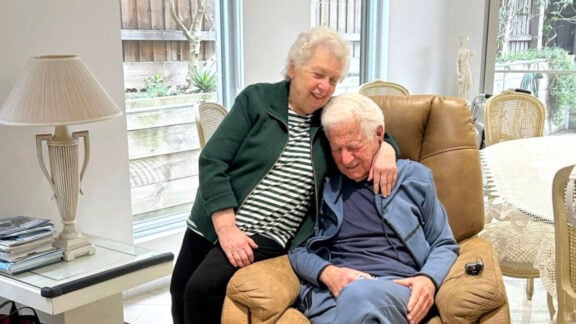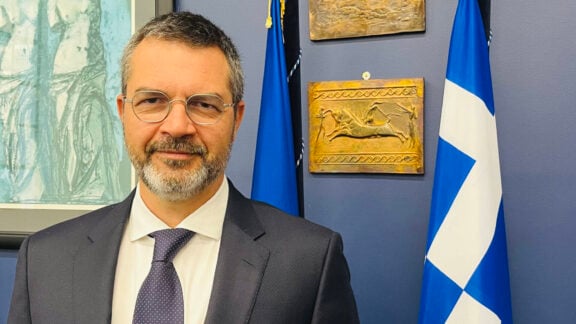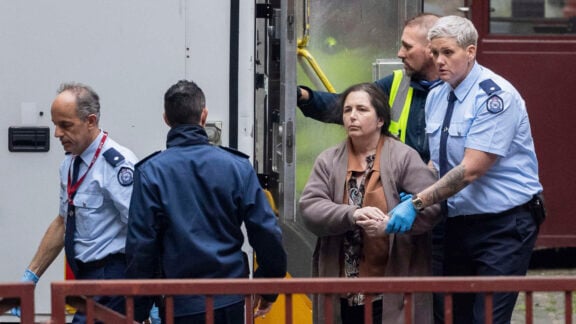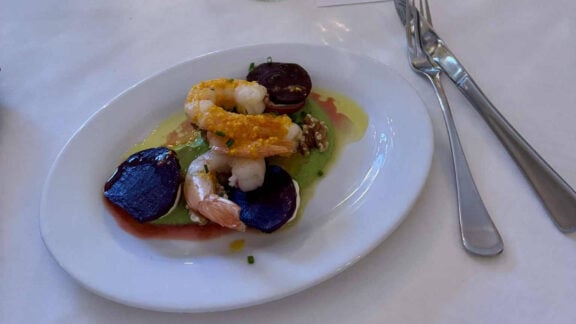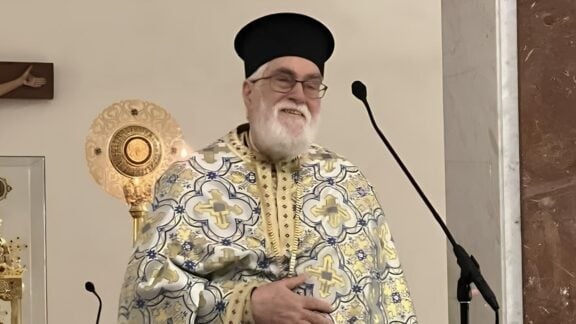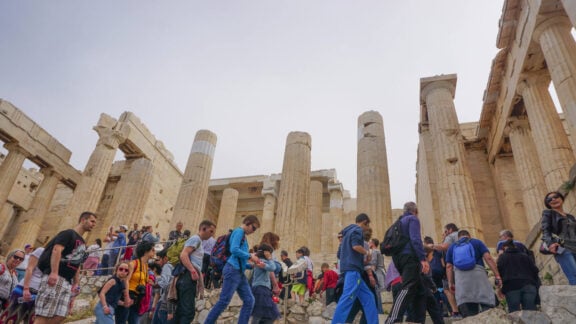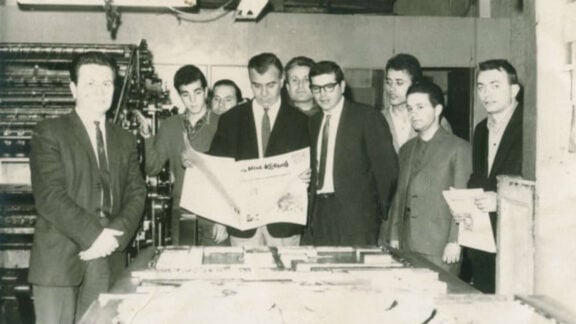For my latest book, Trip to Greece, I collaborated with expert Athenian tutor Kalliope Raekou. For the past 23 years, she has been discovering the best ways for children and adults to master the Greek language. I interviewed Kalliope exclusively for Neos Kosmos about why it’s important to start teaching kids Greek early.
What are some of the challenges for kids in the diaspora to learn Greek?
Nowadays parents in the diaspora do not have much time to nurture their children’s Greek roots. Australia is far away and so trips to Greece are limited, making the process of connecting with Greece more difficult.
The general impression I have while talking with parents of the diaspora is that they are afraid of their kids’ possible slower integration in their new country if they encourage speaking Greek at home. But I want to believe that this attitude is fading. It is a pity to listen to adult students of mine regretting not having spoken Greek before.
How can parents/grandparents make learning Greek fun for kids?
Through three simple ways. Storytelling, as all kids like listening to stories. The problem is that adults do not always have the time (or the patience!) to tell stories. But if we all look back to our childhood we ourselves have fond memories of stories being told by parents or grandparents. The habit of narration has to be re-discovered.
Cooking is also a great way. There is no doubt that when kids make, they learn. They have questions, they are creative, they develop cultural interests in tastes.
And last but not least, photo albums. Pictures, as we all know, appeal to a wide range of ages for a discussion. Generally it is good to make kids curious about Greece and their family history.
Can you share some games or activities that kids can take part in at home?
There is a wide range of games for different ages and different educational targets. ‘Guess who’, ‘word hunting’, ‘verbs playing ball’. But it is important to put language interest in another level too. Why not surprise your child by leaving a note in Greek on their bed, bag, wall, or anywhere prominent! Make the kid wonder what the note says.
The verb-ball game is played like this:
An adult throws a ball to a group of kids.
The adult says a verb in present tense and the child who catches the ball must respond with the verb in past tense.
If the child does not know the word, he or she throws the ball to another child, who then must answer or throw the ball to another child or adult. This game can be played indoors with a balloon. Great birthday party game.
Word hunting is another group activity where each child is invited to paint/draw a picture and the other children need to not only guess what’s being drawn but also say the correct word in Greek. Think ‘Greek Pictionary’.
Tell me a little bit about the lessons you offer via Skype? From what parts of the world do you receive requests?
Moving towards an online or blended learning era, Skype lessons, together with unsynchronised sessions, do not lose the human element between teacher and student.
I have a good number of students and we have a great time together. This is demonstrated by their interest in visiting me when in Greece, and some of my students are interested in summer courses here, too. From Brazil to Dubai, everywhere in Europe and the USA, Greek has become a popular language to learn now.
What’s so unique/great about your method of teaching Greek?
I do not really believe in unique methods as such, more so in the right, tailor-made approaches for each student. Students do not have the same profiles nor the same needs as one another. Learning with a skilled and experienced teacher in a supportive and creative environment, everyone can discover their preferred method of learning.
What are your thoughts about ‘Greeklish’?
Greeklish destroys ‘Greekness’. In a world where we are all pushed to be the same due to trends, technology and globalisation, I would choose to be different. This is not a phobic view but mainly an aesthetical one.
I understand that as far as one can record the spoken sentences in written Greeklish, it is fine. But letters are cultural symbols, they are not just tools. If you were to choose between an authentic piece of art and a bad copy of it, what would you pick?
What you think is so wonderful about books like Trip to Greece and what they offer children?
Books like Trip to Greece can create and nurture the interest and the curiosity I mentioned before, so that kids can go further with the language. Books are those elements which connect the dots and push you to communicate in Greek. Pictures facilitate remembering and trips amplify the acquisition of language.
If you are interested in tailor-made Greek language Skype lessons with Kalliope for your child or yourself, inquire via ninemuses@ninemuses.gr or www.ninemuses.gr
Skype: kalliopi-raekou
Exclusively for Neos Kosmos readers, enjoy an offer of 15 lesson hours for the normal price of 10 hours (€100).
To buy books by Melina Mallos visit www.catchthatcat.com/#!buy-now/ptmha

